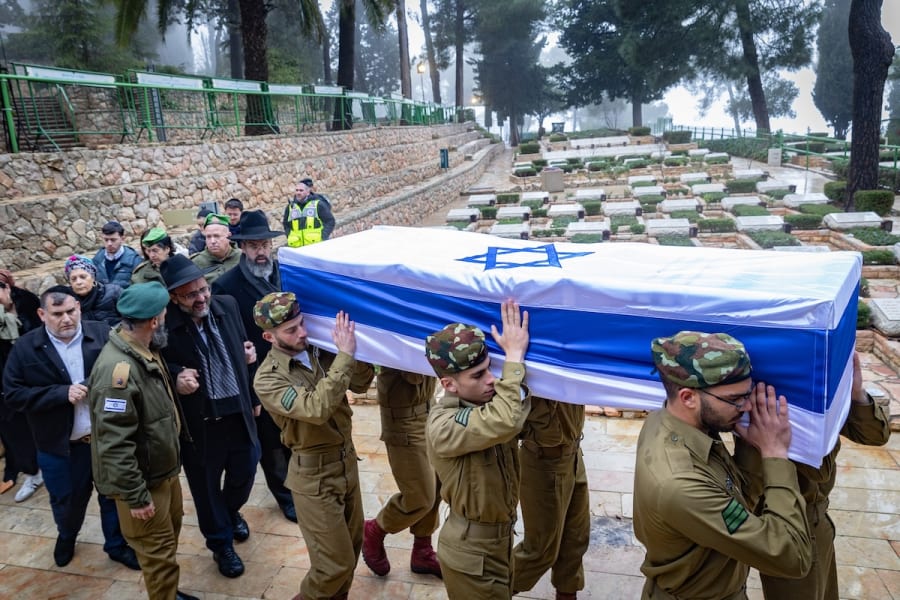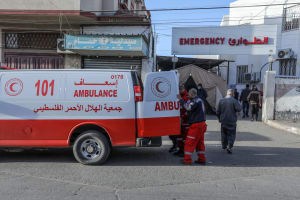The tragedy of IDF suicides

When recently reading about the rise in suicides, among IDF soldiers, over the past year, I knew that it was a subject I needed to explore.
It’s not something that we hear much about – probably because a lot of it has been obscured, due to its upsetting nature, but there was no way to cover up the growing numbers of soldiers who have succumbed to their emotional wounds, which have caused them to feel that there is no other solution to the pain that has become too great for them to carry.
Since October 7th, to the end of this past year, 38 men took their lives, 17 in 2023 and another 21 in 2024. What was particularly disturbing, was that in 2023, nine of those suicides were among reservists, and in 2024 the number increased to 12.
This is significant, because in 2022, there were no suicides among reservists. Prior to October 7th, they were only required to put in a month and a half of service over the course of three years, unlike enlisted men, who are obligated to serve out their full term of 32 months.
However, with the protracted war, now ongoing for over a year, the law for reserve duty was changed, increasing the age to 45 for non-officers and 50 for officers. The amount of time required to serve was also significantly increased. “Instead of a pre-war average of 25-42 days over one to three years, depending on the role, it has jumped to around 136 days per year for combat fighters during wartime, as a result of manpower.”
Some of these men have even served over 200 days, which translates into an enormous burden for these soldiers, the majority of whom already have families and careers. All of this, combined with the ravages of war, seen and felt by these reservists has a tremendous impact on their mental and emotional well-being. But what causes such a drastic act as suicide, especially among those soldiers who serve in combat units?
After speaking to a reservist, in a combat unit, it became clear that while there are definitely army psychologists and other medical personnel who do speak to the soldiers, as well as organized workshops, in an effort to help these men process the atrocities they have seen, talks are done in group settings rather than one on one, which might better help to understand each person’s level of anxiety or stress in a private setting.
He told me that these men really count on each other, so there is a very strong sense of personal obligation towards one another, causing them to project a strong outward image even if they are feeling fragile inside. Sadly, this makes it almost impossible to detect a serious problem. So, if someone is profoundly depressed, troubled or distressed, their hesitancy to disclose what they are feeling, internally, will prevent them from seeking the vital counseling that they need, even though it is available to them.
It should be noted that soldiers, who are known to suffer from PTSD (Post-traumatic Stress Syndrome) do receive ongoing treatment, provided by the State.
Given the burnout experienced by many soldiers, who have voluntarily served well beyond their required quota, it’s no wonder that the trauma they experience is overwhelming, especially knowing that whatever brief time they spend back at home will have to be followed by another round of service.
In analyzing the causes of suicide, it was found that there were three categories responsible. “41% fell under personal and emotional problems, 29% fell under relationship problems with family and 30% fell under functional and adaptation difficulties in the army.”
This same reservist source confirmed that when soldiers enter combat units, as recruits, they are not rigorously questioned, concerning how well they feel they will be able to cope with seeing death all around them or other shocking and disturbing scenarios which are common in wars.
Of course, even if a recruit feels mentally, physically and emotionally prepared to enter a combat unit, it’s hard to predict someone’s response, when seeing the worst, most unimaginable and barbaric acts which can permanently scar one’s heart.
It's almost understandable how horrifying images, which stay with these men, haunting them day and night, to the point of mental anguish, can become so agonizing that the thought of ending one’s life, as a way to stop the nightmare, is perceived as a welcomed relief. But that price is too unbearable for the citizens of any nation, because we realize that they paid the ultimate price for us. It is a demoralizing reality which results in a collective pain and guilt of us all. There must be a way to get to these men, before they feel as if there is no other option!
That may need to include one on one, private sessions with each combat unit recruit and reservist, as trained professionals dig deep into their psyche to force an uncomfortable conversation which has been suppressed in the hope of trying to be an honorable and worthy soldier.
For sure, it must also include the recruitment of all Haredi (ultra-Orthodox) young men, without exemption, whose numbers will be able to relieve soldiers, whose length of service has been extended to well beyond the time required, but who feel the sense of obligation not to return to their homes.
It is painful enough, each time we turn on the nightly news, and hear that more soldiers have been killed, serving their country, but to hear that our young men have committed suicide as a result of being incapable to deal with their stress and all that it involves, is a pain that none of us can endure.
Each of these suicides represents a personal sense of having failed them during their greatest hour of need. It forces us to confront the fact that we didn’t do enough or pay proper attention to possible signs that we may have shrugged off.
These lives are too precious, and cannot be looked upon as the collateral damage which accompanies war. While we cannot bring them back, we can do better, as a country, as a military and as each other’s keepers to put an end to this intolerable situation, because they are our family, and we grievously mourn their loss.
It is my hope that IDF officers and high-ranking leaders are able to find an effective way to get to each soldier, properly evaluating their state of mind, before they become yet another statistic. We have enough enemies, without adding the disastrous effects of war as yet another means for their precious lives to be extinguished.

A former Jerusalem elementary and middle-school principal who made Aliyah in 1993 and became a member of Kibbutz Reim but now lives in the center of the country with her husband. She is the author of Mistake-Proof Parenting, based on the principles from the book of Proverbs - available on Amazon.
You might also like to read this:















